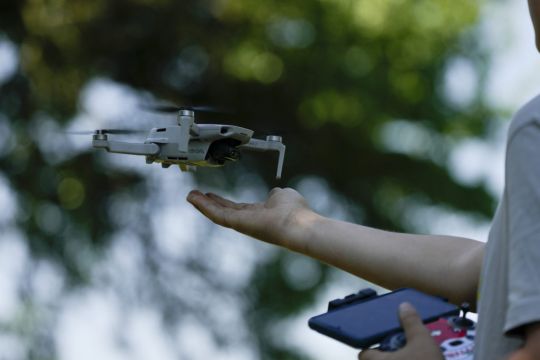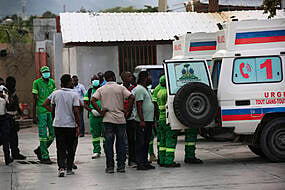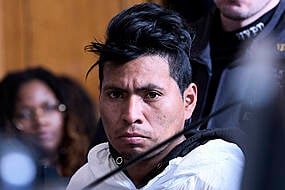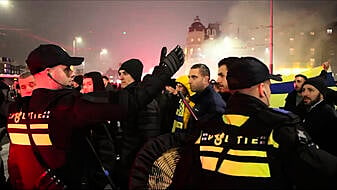As Russian tanks and trucks rumbled close to their village, a Ukrainian teenager and his father stealthily launched their small drone into the air to spy on them.
Working as a team, they took bird’s-eye photos of the armoured column moving towards Kyiv and pinpointed its co-ordinates, swiftly messaging the precious information to the Ukrainian military.
Within minutes, artillery batteries rained shells down on the invading forces, with deadly effect.
Andriy Pokrasa, 15, and his father Stanislav, 41, are being hailed in Ukraine for their volunteer aerial reconnaissance work in the early days of the invasion, when Russian troops barrelling in from the north made an ultimately failed attempt to take the capital and bring the country to its knees.

For a full week after the February 24 invasion, the pair made repeated sorties with their drone – risking capture or worse had Russian troops been aware of their snooping.
“These were some of the scariest moments of my life,” the teenager recounted as he demonstrated his piloting skills for journalists.
“We provided the photos and the location to the armed forces. They narrowed down the co-ordinates more accurately and transmitted them by walkie-talkie, so as to adjust the artillery.”
His father was happy to leave the piloting to the boy.
“I can operate the drone, but my son does it much better,” he said. “We immediately decided he would do it.
They are not sure how many Russian targets were destroyed using information they provided, but they saw the devastation wrought on the Russian convoy when they later flew the drone back over the charred hulks of trucks and tanks near a town west of Kyiv and off a strategically important highway that leads to the capital.

“There were more than 20 Russian military vehicles destroyed, among them fuel trucks and tanks,” Mr Pokrasa said.
As Russian and Ukrainian forces battled furiously for control of Kyiv’s outskirts, Ukrainian soldiers finally urged the Pokrasa family to leave their village, which Russian troops subsequently occupied.
With all adult men up to age 60 under government orders to stay in the country, Mr Pokrasa could not join his wife and son when they fled to Poland.
They came back a few weeks ago, when Andriy had finished his school year.
“I was happy that we destroyed someone,” the teenager said. “I was happy that I contributed, that I was able to do something. Not just sitting and waiting.”







